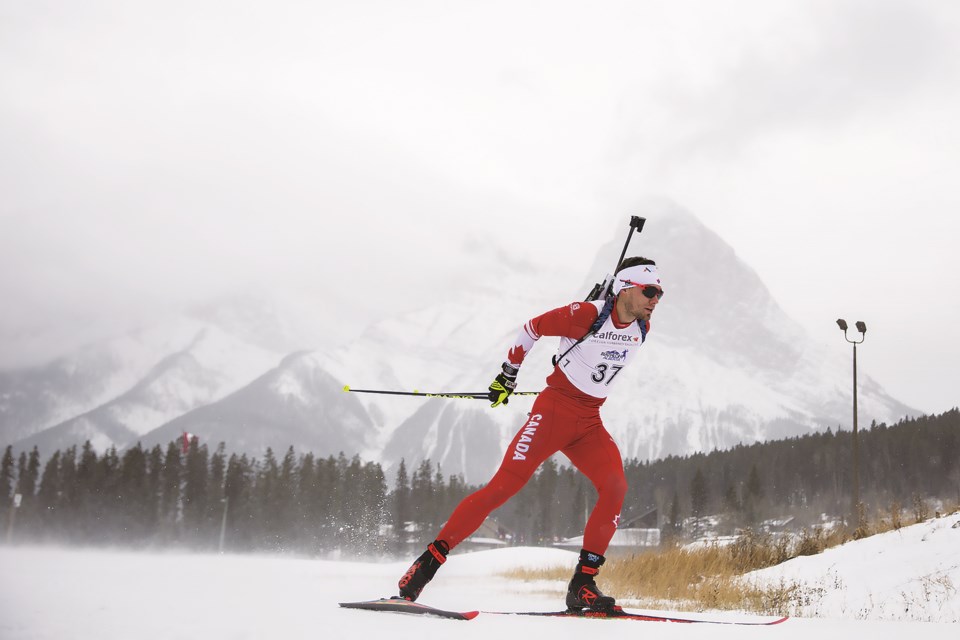Christian Gow, biathlon, top 5 world cup threat
Christian Gow is doing Steph Curry type stuff on the biathlon range.
While one is the trigger-happy king of the NBA three ball, the other is a deadeye gunslinger quickly making claim to his own throne as one of biathlon’s superior snipers. With a ridiculous 90 per cent overall accuracy (93 per cent prone, 87 per cent standing), no man inside the top 10 world cup rankings is picking off targets with more efficiency than Gow is heading into Beijing.
Simply put, the 28-year-old is shooting the friggin’ lights out before the most important races of his career.
“This year I feel more ready to like really go and hopefully throw down some top results,” said Gow.
The past 12 months of racing have been special for the 28-year-old who’s getting addicted to topping himself in outing-after-outing. At the 2021 world championships, the biggest races of the year outside of an Olympics, Gow smashed personal bests, finishing 11th in the mass start and 17th in the 10-km sprint.
At the start of this world cup season, Biathlon Canada had its best day in a decade with four PBs, which included Gow’s 10 th place in the 20-kilometre individual.
Then in the final world cup before the Olympics, the men’s relay team of Gow, brother Scott Gow, Jules Burnotte and Adam Runnalls finished fifth. It was the Canadian men’s best result since the 2016 world championships where the Gow brothers, Nathan Smith and Brendan won bronze.
“Biathlon is like a classically ‘anything can happen’ so that works in my favour, but it also almost in some ways can be what gets you because anyone can have a breakout performance at any time,” said Gow.
Channelling his inner “King of Biathlon” Ole Einar Bjørndalen, whose poster hung on the bedroom wall of an admiring Gow for at least a decade, the elite jump for Gow started after the PyeongChang Games when Pavel Lantsov was brought on as the Canada’s shooting coach.
As far as high praises go, Gow considers Lantsov to be the best shooting coach in the world.
A bigger emphasis was put on consistency and mental training with the team’s sports psychology was also crucial in seeing the development in the skiing and shooting beast in front of us today.
“Spending all that extra time learning about what works for you and how to get into the right zone consistency in a race I think made a big difference and allowed me to keep my shooting consistently at a higher level throughout the season,” Gow said.
Having a deep connection and drive for the sport, Gow’s wanted to pursue biathlon since a young age after discovering it at a summer camp at Calgary Olympic Park.
He later found out that Scott, who’s a few years older, also discovered the shooting and skiing sport on the same day and wanted to test it out.
“It’s funny we tried it on the same day, but independently of each other, but we both decided we wanted to look into a little bit more and jumped in the fall and we’ve been training ever since,” said Gow.
Since PyeongChang 2018, Gow’s first trip to the Games, he’s focused much of his training around consistency. Working not only in the range, but always improving his ski technique. It’s been a constant project and honing of the process.
Ahead of Beijing, at the top of his game, Gow, like the rest of the biathlon team, has bold aspirations.
“A huge dream is to walk away with a podium result and I know it’s possible,” said Gow.
“It will take a very good day, but we’ve prepared for this and that’s the dream, so why not go for it?”



.png;w=120;h=80;mode=crop)